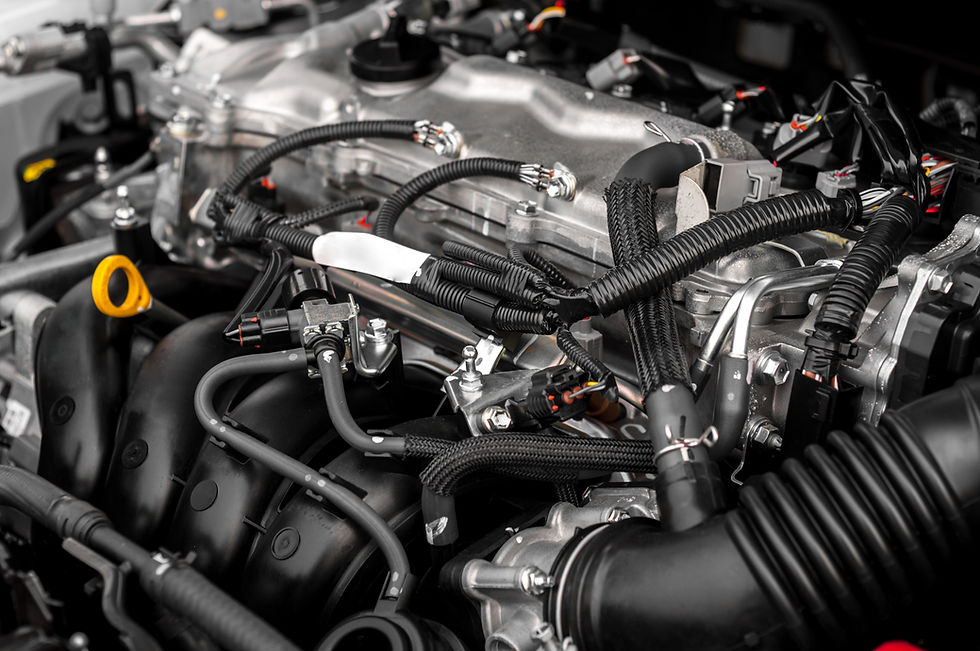Does Chevy's New Corvette Concept Have One Fatal Flaw: No V-8?
- Admin
- 4 days ago
- 3 min read
Updated: 2 days ago

The Chevrolet Corvette has long been a symbol of American performance and engineering, and for years, the roar of its iconic V-8 engine has been a key part of its identity. But what happens when the Corvette evolves into a hypercar, and the familiar growl of the V-8 is replaced by the silence of an electric motor? General Motors is asking this very question with its latest Corvette concept, one that reimagines the classic American sports car as a fully electric machine.
The Chevrolet C8 Corvette has only been on the market for five years, yet GM is already teasing the future of the Corvette lineup. This new concept, developed by GM's advanced design studios in the United Kingdom, showcases what the future of the Corvette might look like. The car's design borrows heavily from the Corvette’s styling history, with sleek, aerodynamic lines that make it look like something straight out of a video game. The concept features gullwing doors and a split in the front and rear windows, evoking the iconic "split window" design from the 1963 Chevrolet Corvette Sting Ray.
But despite the futuristic and visually striking design, there’s one critical flaw in the concept—its powertrain. This Corvette concept, as advanced and futuristic as it is, features an all-electric powertrain, marking a sharp departure from the traditional combustion engine that has long been at the heart of the Corvette brand. While GM has previously expressed its intention to electrify the Corvette lineup, seeing a design study for the future of the Corvette without any mention of a combustion engine is a bold and, for many, a jarring move.
Impressive Specs
The specs for the concept are impressive in their own right. The car sits on 22-inch front and 23-inch rear wheels and measures 40.7 inches tall, 85.8 inches wide, and 183.8 inches long. For comparison, the C8 is 48.6 inches tall, 85.5 inches wide (with mirrors), and 182.3 inches long. The new concept’s design is meant to reflect the future of high-performance EVs, with a “panoramic view of the road and surroundings” provided by its unique “Apex Vision” design.
The top half of the concept retains the classic Corvette styling elements that enthusiasts love, including a tapered rear window and familiar-looking wheel arches. Meanwhile, the lower half has a more technical and futuristic feel, with integrated aerodynamics designed to channel air effectively, reducing the need for wings or spoilers. It also features a sculpted underbody, reconfigurable aero surfaces, and deployable dorsal fins for track use. The concept also lists a pushrod suspension and a "race car inspired" chassis.
While the technical elements and design features are certainly impressive, the absence of a V-8 engine stands out. For decades, the Corvette has been synonymous with the power of its V-8 engine. It’s not just a performance car; it’s a car built around the sound and power of its combustion engine. Transitioning away from that to an electric powertrain, while forward-thinking, risks alienating the loyal fans who’ve grown accustomed to the visceral driving experience that a V-8 provides.
Michael Simcoe, GM’s senior vice president of global design, emphasized that the company’s advanced design teams are focused on imagining what the future of mobility could look like—five, 10, or even 20 years from now. While this may be an exciting vision for the future, the concept raises the question of whether a Corvette without the V-8 engine is still truly a Corvette in the eyes of the brand's most devoted fans.
Will the Public Accept a Silent Corvette?
For many, the Corvette has always been defined by its V-8 engine, and to reimagine it as an electric hypercar without that iconic feature may feel like a step too far. GM’s ambition to push the envelope with advanced design is admirable, but for those who cherish the raw power and emotional connection of a V-8, the absence of this engine could be seen as a fatal flaw in what might otherwise be a groundbreaking concept.
In the end, while the fully electric Corvette concept may be an exciting glimpse into the future of automotive performance, it begs the question: Can the Corvette brand truly evolve without its V-8 engine at its core? Time will tell, but one thing is for sure—if the V-8 is truly gone, the transition to an all-electric Corvette will be a much harder sell for long-time fans of the iconic sports car.
About Us
Charged UP! is one of the most widely read publications in the EV charging space. Our approach is to take topics that are of interest to everyone and mention companies that provide best in class approaches. To discuss including your products or services, contact us at info@chargeduppro.com
At Charged Up!, we are committed to keeping businesses and individuals informed about the evolving EV landscape. For more updates and insights, subscribe to our newsletter at chargeduppro.com/subscribe.





Comentários